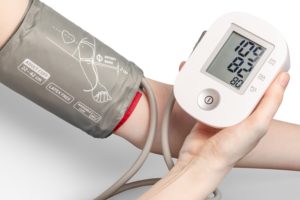
The question of parenthood is a deeply cherished aspiration for many individuals and couples. It represents a profound journey filled with hope, dreams, and the anticipation of nurturing a new life. However, this journey can sometimes encounter unexpected obstacles, and one such obstacle that often remains concealed is the link between hypertension, commonly known as high blood pressure, and low sperm count.
Is there a connection between hypertension and male fertility? I will review the role of high blood pressure in causing low sperm count. Hypertension, a pervasive and often asymptomatic medical condition characterized by elevated blood pressure levels, is a concern that extends beyond cardiovascular health and enters the realm of male reproductive health.
Hypertension and Male Reproductive Health
Hypertension is an ailment that affects millions of individuals worldwide. I will explore the various stages and classifications of hypertension, delving into the mechanisms that regulate blood pressure within the body. Additionally, I will provide an overview of the global prevalence of hypertension and the substantial number of people it affects.
It is important to understand how hypertension can affect the male reproductive system, specifically focusing on the issue of low sperm count. To comprehend this connection, we will explore the intricate web of factors within hypertension that can disrupt the delicate balance of sperm production and contribute to reduced sperm count.
It is vital to recognize that hypertension is a multifaceted condition with repercussions that extend beyond heart health. The effects of hypertension on hormonal balance, circulation, and cellular function all play pivotal roles in the context of male fertility and sperm count.
Source: Hypertension
Understanding Hypertension
To comprehend the intricate relationship between hypertension and low sperm count, we must first establish a comprehensive understanding of hypertension itself. Hypertension, commonly referred to as high blood pressure, is a medical condition characterized by persistently elevated blood pressure levels within the arteries.
Classification of Hypertension
Hypertension is typically classified into two main categories based on the severity and persistence of elevated blood pressure:
- Primary (Essential) Hypertension: This is the most common form of hypertension and often has no identifiable cause. Primary hypertension typically develops gradually over time due to a combination of genetic factors, lifestyle choices, and aging. It can persist for years without noticeable symptoms, earning it the label of the “silent killer.”
- Secondary Hypertension: Unlike primary hypertension, secondary hypertension can be attributed to a specific underlying medical condition or factor. This form of hypertension may develop suddenly and is often a consequence of conditions such as kidney disease, hormonal disorders, or the use of certain medications. Identifying and addressing the underlying cause is crucial in managing secondary hypertension.
Blood Pressure Regulation
The regulation of blood pressure is a complex and finely tuned process that involves various organs and systems in the body. At its core, blood pressure is a measure of the force exerted by the blood against the walls of arteries as the heart pumps it throughout the circulatory system.
The two primary values used to define blood pressure are systolic and diastolic pressure. Systolic pressure represents the force exerted on arterial walls when the heart contracts (beats), while diastolic pressure reflects the force when the heart is at rest between beats.
Source: Measuring Blood Pressure
Prevalence of Hypertension
Hypertension is a global health concern, affecting millions of individuals worldwide. According to the World Health Organization (WHO), hypertension is one of the leading causes of premature death and is responsible for a significant burden of cardiovascular diseases, including heart attacks and strokes. It is estimated that approximately one in three adults worldwide has hypertension, making it a pervasive and pressing public health issue.
Understanding the classifications of hypertension and the mechanisms governing blood pressure regulation is foundational to appreciating its potential impact on male reproductive health, specifically low sperm count.
Hypertension and Its Impact on Male Reproductive Health
Hypertension, often perceived as a cardiovascular concern, can significantly influence various aspects of male reproductive health. In this section, I explore how hypertension affects the male reproductive system and delve into the mechanisms that link hypertension to low sperm count.
Hormonal Imbalances
Hypertension can lead to hormonal imbalances within the body, potentially disrupting the delicate interplay of hormones crucial for male reproductive health. In particular, elevated blood pressure levels may affect the endocrine system, which is responsible for regulating hormone production.
- Aldosterone and Testosterone: High blood pressure can stimulate the release of aldosterone, a hormone that plays a role in regulating blood pressure. Unfortunately, excessive aldosterone levels may indirectly impact testosterone production. Testosterone, the primary male sex hormone, is essential for maintaining the male reproductive system, including sperm production.
- Impact on Testicular Function: The testes, responsible for sperm production, are sensitive to fluctuations in hormonal balance. Hypertension-induced hormonal imbalances may hinder the normal functioning of the testes, potentially reducing sperm production and contributing to low sperm count.
Oxidative Stress and Inflammation
Hypertension is often associated with oxidative stress and chronic inflammation throughout the body. Oxidative stress occurs when there is an imbalance between harmful free radicals and protective antioxidants. This imbalance can lead to cellular damage, including within the testes.
- Sperm Quality: Oxidative stress and inflammation can adversely affect sperm quality. Sperm cells are particularly vulnerable to oxidative damage, which may result in abnormalities in sperm morphology (shape) and motility (movement). Such sperm abnormalities can further reduce fertility potential.
Circulatory Complications
Hypertension is known to cause circulatory complications, including damage to blood vessels and reduced blood flow. In the context of male reproductive health, these circulatory issues can directly impact the testes’ blood supply. A compromised blood supply can hinder the delivery of oxygen and nutrients essential for sperm production, potentially leading to low sperm count.
- The Role of Hypertension Medications: It is worth noting that certain medications used to manage hypertension, such as beta-blockers and diuretics, may have side effects related to sexual function, including erectile dysfunction and decreased libido. These side effects can indirectly impact fertility.
Hypertension’s influence on male reproductive health extends beyond its cardiovascular implications. The hormonal imbalances, oxidative stress, inflammation, and circulatory complications associated with hypertension collectively create an environment within the body that is less conducive to optimal sperm production.
Understanding these mechanisms is essential for individuals and couples concerned about fertility issues related to hypertension.
Source: Hypertension and Reproduction
Factors Contributing to Low Sperm Count in Hypertension
The connection between hypertension and low sperm count is a multifaceted interplay of various factors within the hypertensive condition. In this section, I will review these factors and explore how they collectively contribute to the reduction in sperm count.
Chronic High Blood Pressure
Chronic high blood pressure, a hallmark of hypertension, plays a central role in influencing sperm count. Elevated blood pressure levels can create a less-than-optimal environment within the testicles where sperm are produced. This chronic elevation can lead to oxidative stress, a state characterized by an imbalance between harmful free radicals and protective antioxidants. Oxidative stress can result in damage to sperm cells, reducing their quantity and quality.
Endothelial Dysfunction
Hypertension can cause endothelial dysfunction, a condition where the inner lining of blood vessels (endothelium) does not function properly. Endothelial dysfunction can lead to reduced blood flow, impairing the delivery of oxygen and nutrients to the testicles. The testes require an optimal blood supply to support the energy-intensive process of sperm production.
Hormonal Imbalances
As mentioned earlier, hypertension-induced hormonal imbalances can impact testosterone levels. Lower testosterone levels can affect the health of the seminiferous tubules within the testicles, where sperm are generated. Insufficient testosterone can hinder the proper functioning of these tubules, leading to a decrease in sperm count.
Inflammation and Immune Response
Inflammation is a common companion of hypertension. Chronic inflammation within the testicles can interfere with the precise processes involved in spermatogenesis, the formation of sperm cells. Furthermore, the immune response to chronic inflammation may inadvertently target the sperm-producing cells, further reducing sperm count.
Medications and Sexual Function
Some medications used to manage hypertension may have side effects related to sexual function. For instance, beta-blockers and diuretics are known to potentially contribute to erectile dysfunction and decreased libido. These side effects can indirectly impact fertility by affecting sexual activity and ejaculation.
Hypertension can influence male fertility, including sperm count, through a combination of mechanisms. Chronic high blood pressure, endothelial dysfunction, hormonal imbalances, inflammation, and potential medication side effects collectively create an environment within the body that is less conducive to optimal sperm production.
Source: How Hypertension Can Affect Your Fertility
Understanding these contributing factors is essential for individuals and couples concerned about fertility challenges related to hypertension.
How Hypertension Affects Sperm Count and Male Fertility
The influence of hypertension on male fertility, specifically in the context of low sperm count, carries implications that extend beyond the numerical reduction in sperm. In this section, I review the broader ramifications of low sperm count resulting from hypertension and delve into the emotional aspects of coping with fertility challenges.
Reduced Fertility Potential
Low sperm count, a frequent consequence of hypertension, has a direct impact on fertility potential. A diminished quantity of sperm translates into a lower likelihood of successful fertilization. For couples attempting to conceive, this may result in prolonged efforts, heightened stress, and emotional strain.
Emotional Aspects
Coping with fertility challenges due to hypertension-related low sperm count can evoke a spectrum of emotions:
- Stress and Anxiety: Individuals and couples navigating these challenges may experience heightened stress and anxiety as they grapple with the intricacies of fertility treatments and uncertain outcomes.
- Depression: The extended duration of fertility struggles can contribute to feelings of sadness and depression. Managing these emotions is an integral aspect of the journey, and seeking support when needed is crucial.
- Relationship Impact: Fertility challenges can strain relationships. Open communication, empathy, and mutual support are vital for couples facing these difficulties together.
Importance of Early Diagnosis
Early diagnosis of hypertension and its potential impact on fertility is paramount. Timely identification enables individuals to take proactive steps to manage their hypertension effectively. These measures may include lifestyle adjustments, medication management, and regular monitoring of blood pressure levels.
Effective hypertension management can help mitigate its effects on sperm count and overall reproductive health.
Source: Hypertension affects reproductive health
Lifestyle Modifications
Lifestyle plays a pivotal role in managing hypertension and preserving fertility. Maintaining a healthy weight, adopting a balanced diet, engaging in regular physical activity, and managing stress can all contribute to better blood pressure control. These lifestyle modifications can positively influence hormonal balance and sperm production.
Seeking Support
For individuals and couples facing fertility challenges related to hypertension, seeking support from healthcare professionals and fertility specialists is essential. These experts can provide guidance on fertility treatments, options for assisted reproductive technologies, and emotional support throughout the journey.
Conclusion
Low sperm count resulting from hypertension is not solely a numerical concern; it encompasses emotional aspects, challenges within relationships, and implications for fertility potential. Recognizing the broader ramifications underscores the significance of early diagnosis and effective hypertension management.
It also emphasizes the importance of providing emotional support and empathy to individuals and couples on their path to parenthood, offering hope and guidance as they navigate the intersection of hypertension and fertility.


